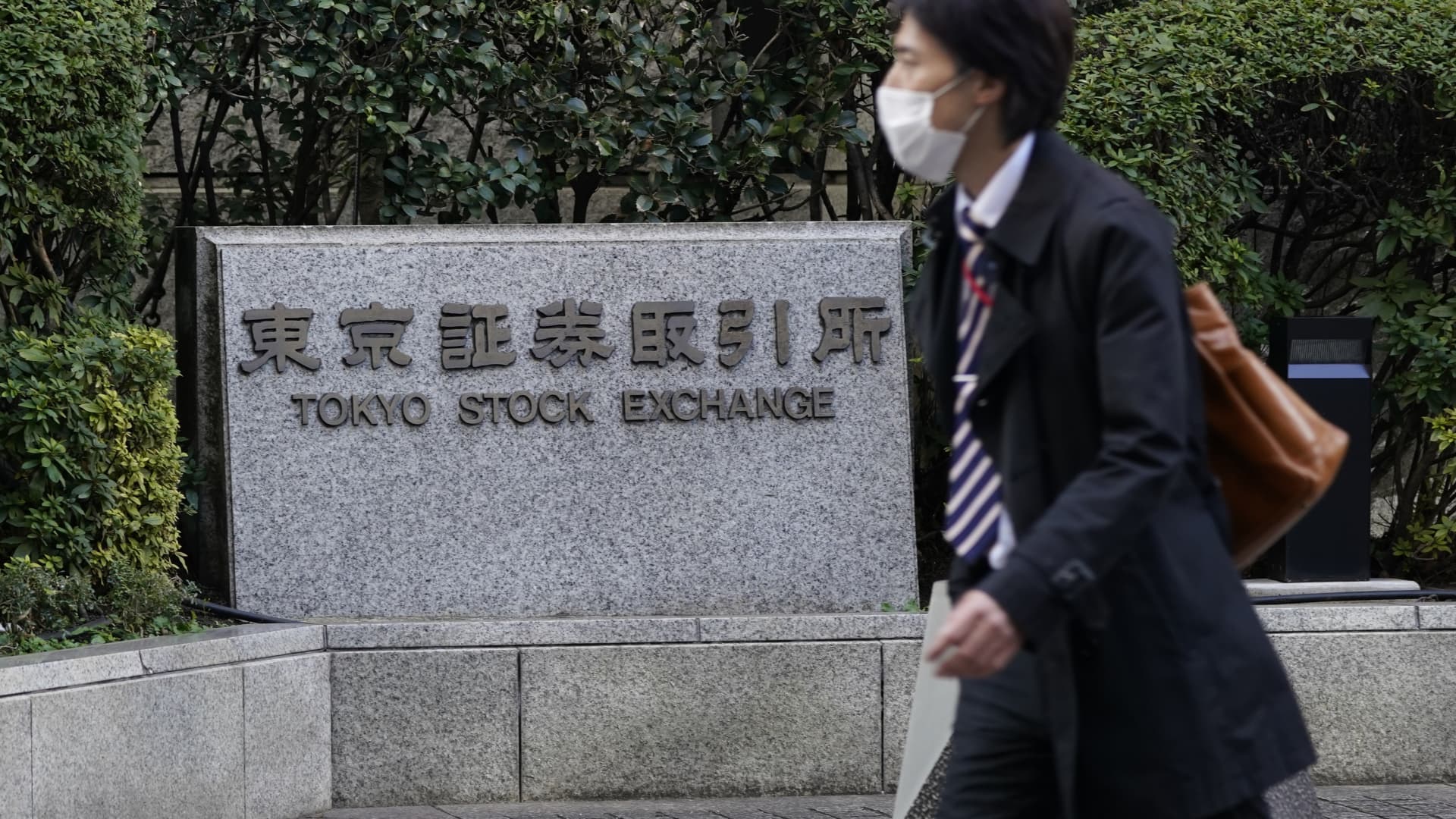A man walks past the Tokyo Stock Exchange (TSE), operated by Japan Exchange Group Inc. (JPX), in Tokyo, Japan, on Monday, Nov. 30, 2020.Toru Hanai | B
A man walks past the Tokyo Stock Exchange (TSE), operated by Japan Exchange Group Inc. (JPX), in Tokyo, Japan, on Monday, Nov. 30, 2020.
Toru Hanai | Bloomberg via Getty Images
Shares in the Asia-Pacific traded higher on Wednesday after U.S. stocks rallied for a second day.
Hong Kong’s Hang Seng index jumped 4.4% before paring some gains to trade at 3.8%, on its return to trade after a holiday Tuesday. The Hang Seng Tech index was 5.44% higher.
The Nikkei 225 in Japan rose 0.52%, rising above the 27,000 level, while the Topix added 0.51%.
In South Korea, the Kospi advanced 0.47% and the Kosdaq gave up early gains to fall 0.63%. Australia’s S&P/ASX 200 was up 1.63. MSCI’s broadest index of Asia-Pacific shares outside Japan rose 2.18%.
On the economic front, inflation in South Korea slowed slightly in September, according to official data released Wednesday.
Mainland China markets remain closed for the Golden Week holiday, and India’s market is also closed for a holiday.
On Wall Street overnight, stocks soared overnight in the U.S. for a second session. The Dow Jones Industrial Average jumped 825.43 points, or 2.8%, to 30,316.32. The S&P 500 advanced nearly 3.1% to close at 3,790.93, and the Nasdaq Composite was 3.3% higher to end at 11,176.41.
“There is no denying incoming U.S. economic data is having a hand in equity, bond and currency moves so far this week,” wrote Ray Attrill, head of FX strategy at National Australia Bank.
The U.S. Job Openings and Labor Turnover report sprang a “big downside surprise” that couldn’t be ignored, he wrote. It’s the “first meaningful sign of some cracks” in the labor market, though it is still very tight, he added.
— CNBC’s Tanaya Macheel and Alex Harring contributed to this report.
www.cnbc.com
